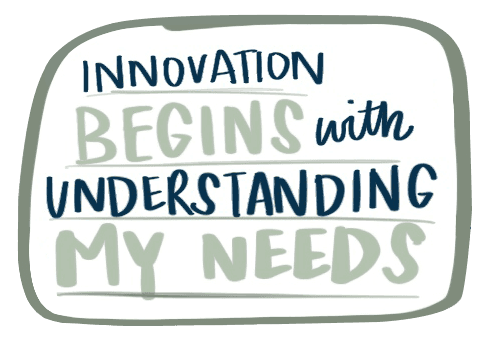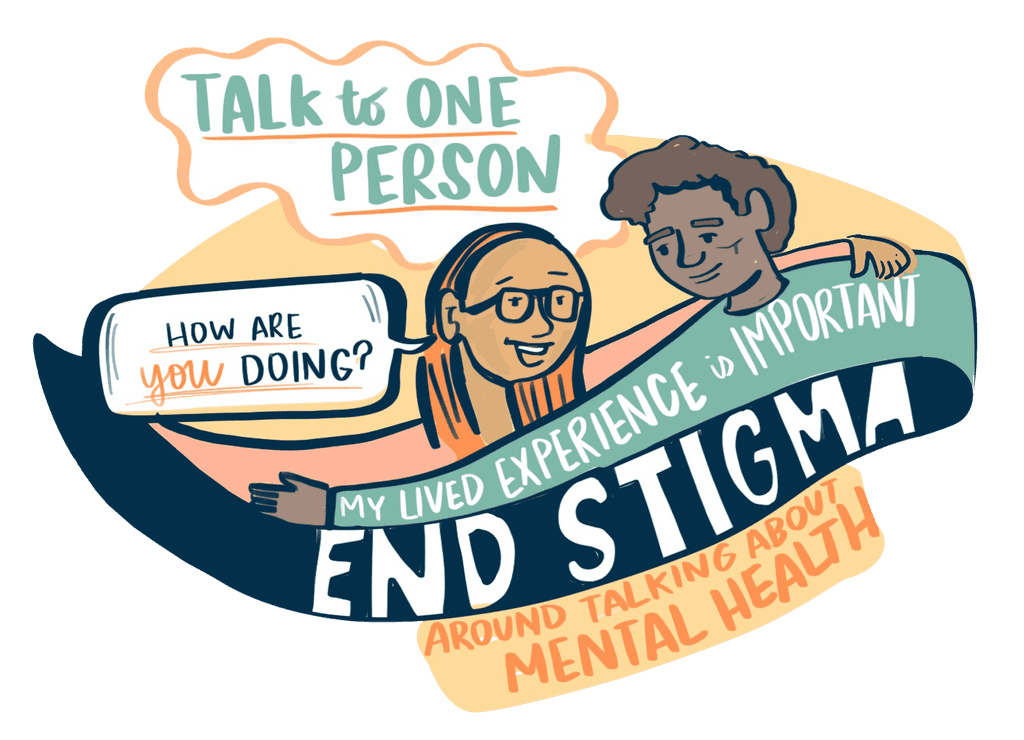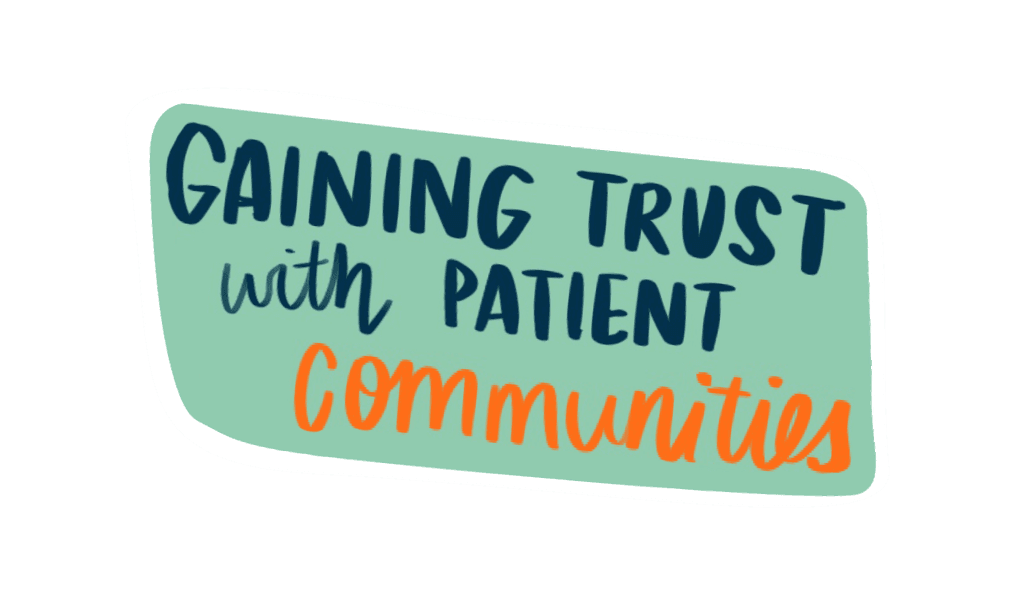Hosted by The American Brain Coalition and
championed by Sage Therapeutics and Biogen.

I remember the moment when I knew I was in trouble and could no longer wait to get help. I was driving on I-95 to work, trying to figure out how fast I could be going to crash into the median and end it all. I knew then that I needed help, and fast. I started calling doctors in my network and remember clearly a conversation I had with the receptionist who told me the doctor could see me in nine months. I remember telling her, I won’t be alive in nine months. I will be lucky if I’ll make it 48 hours.
— Rep. Hillary Cassel,
Member, Florida House of Representatives
And patient advocates are leading the way.
On February 27, 2023, the American Brain Coalition partnered with Sage and Biogen to launch the Mental Health Innovation Summit. The Summit mobilized 53 patient advocates from 41 organizations across the health landscape to innovate on solutions that can address critical gaps in mental health support, systems and treatment.
What resulted were actionable ideas designed to address long-entrenched problems, like how to broaden access to innovations and how to shift the mental health paradigm to demonstrate once and for all that mental health is health.
Advocates agreed: we can’t wait for action to improve mental health care; the community must act now.
1 - Illustration created at the Mental Health Innovation Summit, February 27, 2023.



1
Systems Innovation Now
When we think about mental health in our healthcare system, we can find significant, innovative change through high impact points of intervention.
– John MacPhee, CEO, The JED Foundation
1,2
According to the 2023 State of Mental Health in America report³, almost a third (28.2%) of all adults with a mental illness reported that they were not able to receive the treatment they needed, for reasons including:
In the U.S., there are 350 individuals for every one mental health provider. As of June 2022, over 152 million people lived in a mental health workforce shortage area³.

Solutions to these challenges exist, but they require awareness and investment across sectors.
1 - U.S. Substance Abuse and Mental Health Services Administration. Key Substance Use and Mental Health Indicators in the United States: Results from the 2021 National Survey on Drug Use and Health (PEP22-07-01-005)
2 - Wang PS, et al. Delays in Initial Treatment Contact after First Onset of a Mental Disorder. Health Services Research. 2004 Feb; 39(2); 393 - 416.
3 - Reinert, M, Fritze, D. & Nguyen, T. The State of Mental Health in America 2023. Mental Health America, October 2022.
2
Meeting the need at greater speed – reforming “fail first” policies


What is “fail first”?
According to the National Alliance on Mental Illness (NAMI), sometimes health insurers may request or require patients to demonstrate unsuccessful treatment on one or more insurer-preferred medications before they receive coverage for the medication that their physician recommends. This practice is known as step therapy or “fail first,” meaning that an individual must try and “fail” on one or more medications before they can try another that may have been recommended by their health care provider².
Why advocates feel “fail first” is a problem in mental health care
Insights from NAMI indicate that, for many people with mental illness, medication is an essential part of their treatment and can be a valuable tool in overall well-being. The use of mental health medications is a decision made between an individual and their health care provider based on their symptoms, treatment history and consideration of side effects. Mental health medications affect people — even those with the same diagnosis — in different ways, including varying levels of effectiveness and different side effects².
When a health insurer requires a “fail first” protocol, it can pose serious risks to a person taking mental health medication because it can result in some patients not being able to access the treatments they need in a timely manner. Delayed access to effective mental health treatment can endanger the well-being of patients³.
A study of more than 1,600 Medicaid mental health patients
across 10 states(*3) found that:

We can reform the "fail first" mentality and ensure patients get the treatment that’s right for them – right away.
1 - Mental Health Innovation Summit – Live illustration capture (February 27, 2023)
2 - National Alliance on Mental Illness (NAMI) Step Therapy. https://www.nami.org/Advocacy/Policy-Priorities/Improving-Health/Medications-Step-Therapy. Accessed May 15, 2023.
3 - West JC, et al. Medicaid Prescription Drug Policies and Medication Access and Continuity: Findings from Ten States. Psychiatry Online. 2015 Jan; 60(5); 601-610.
4 - Lenahan KL, et al. Variation In Use And Content Of Prescription Drug Step Therapy Protocols, Within And Across Health Plans. Health Affairs. 2021 Nov;40(11):1749-1757



3
Advocates must be equipped to empower patients
I will speak to the power of patient advocacy…that feedback is so instrumental and necessary… I have found that the rubber hits the road when you combine the patient experience with evidence-based data and metrics.
– Jamie Belsito, Founder, Maternal Mental Health Leadership Alliance
Information is Power
Thanks in large part to efforts by patient advocates, the FDA created the Patient-Focused Drug Development (PFDD) Program(*1) to better incorporate the patients’ voice in drug development and evaluation. Although advocates can provide comments during PFDD meetings, advocates at the Summit expressed the need for a greater understanding of how their input informs the decision-making process. Advocates are eager to better understand and shape how regulators consider their insights and perspectives.

We can ensure advocates are informed, equipped, and empowered to do the work only they can do: speak up for patients who need it most.
1 - CDER Patient-Focused Drug Development, https://www.fda.gov/drugs/development-approval-process-drugs/cder-patient-focused-drug-development


4
Common Language Drives
Common Goals
[We] conduct[ed] a survey so that we could get an understanding of how black women thought about health... Not surprisingly, most of the words and phrases were psychosocial. About 85% of the words and phrases black women used to define health were things like, I'm calm, I'm at peace, I'm in control. About 10% were financially related, I can keep a roof over my head [and] I can take care of my children. Only about 5% of the words and phrases black women used to define health had anything to do with disease states or physical health...
...The vast majority of us have no language at all to describe our feelings, emotions, or stressors.
– Linda Goler Blount, President and CEO, Black Women’s Health Imperative
A goal by any other name
With more than 50 advocates at the table, the Mental Health Innovation Summit made clear that advocates largely have common goals, but the language they use to articulate those goals varies – often widely. Advocates called for common language to amplify individuals’ lived experiences and make clear the challenges associated with access to care. Using a shared lexicon can create a foundation for PAGs across different disease states to identify common goals and work collaboratively for mental health innovation.

We can get on the same page by uniting patients and advocates behind one common language - making our message louder and clearer.


5
Innovate with Patients,
Not for Patients
We need to allow the community to share their own stories to empower each other and to confirm the conversation around mental health. This will break down the barriers that exist.
- Stacey Brayboy, Sr. Vice President Public Policy & Government Affairs, March of Dimes
It Starts (and Ends) with Keeping Patients at the Center
Patients and PAGs face many challenges in the mental health landscape that likely require systemic and structural solutions. Throughout the Summit, patient advocates discussed potential innovative approaches that may help to improve mental health support and treatment. The theme that came through most clearly: innovation needs to be driven by patients through a bottom-up approach.

We can give patients and advocates the tools and support to make their voices heard and transform our mental health systems for the better.


6
Build an Equitable
Future Together
Mental health equity is the state in which everyone has a fair and just opportunity to reach their highest level of mental health and emotional
well-being. The majority of the population that we’re talking about never had that luxury.
– Regina Davis Moss, Associate Executive Director of Public Health Policy and Practice, American Public Health Association
How do we close mental health disparities?
It’s inarguable that compassionate, culturally competent, and equally accessible care is critical in every healthcare setting. Elevating the importance of such care in mental health has the potential to drive the reduction of overall health disparities.

We can bridge these divides and make progress toward delivering culturally competent and equally accessible mental health care to all.

Dr. Barbara Brown
Member at Large
Black Women’s Health Imperative (BWHI)

Randall Rutta
Chief Executive Officer
National Health Council (NHC)

Wendy Davis
Executive Director
Postpartum Support International (PSI)

Elizabeth Stafford (she/her)
Director of Research
National Alliance on Mental Health (NAMI)

John MacPhee
Chief Executive Officer
The JED Foundation

Nathan Tatro
Vice President of Alliance Development
Mental Health America (MHA)

Juanita Pharr
Director of Clinical Affairs
Parkinson’s Foundation

Michael Ward
Vice President of Public Policy & Government Affairs
Alliance for Aging Research
The Mental Health Innovation Summit was designed by a Steering Committee with deep and diverse expertise, and was championed by Sage and Biogen.




















